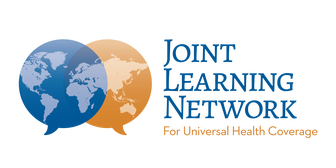Home > What We Do > Information Environment & Other Cross-Cutting > Information Technology
Information Technology
About the Learning Exchange
Globally, countries are expanding health coverage to more of their citizens through the development of national health coverage plans. Policies, implementation challenges, technologies, and models of universal health coverage (UHC) programs vary from country to country. Yet, one challenge all systems face is the need for consistent data exchange. Without it, healthcare providers, insurers, government agencies, and other stakeholders are unable to communicate effectively, which can lead to poor customer care, inadequate financial management, and an unresponsive system. However, information systems are costly investments that all too often do not meet user needs due to inadequate identification of functional requirements, lack of interoperability between systems, or poor vendor choice. Aiming to prevent these common complications, members of the JLN Information Technology Initiative work together to develop common tools that can be shared across countries and used to develop national health insurance information system plans.
Past Collaborative Work
Members of the JLN Information Technology Technical Initiative, facilitated by PATH and the PharmAccess Foundation, leverage peer-to-peer learning to develop and share artifacts, knowledge, and tools that can be used by countries to accelerate the development of national health insurance information solutions. One such tool is openHDD—a collaborative, web-based, open-source tool for creating health data dictionaries (HDDs). HDDs enable communication among people and information systems by promoting consistent, accurate, and systematic data definitions required to support system interoperability.
JLN-member countries collaborate to develop common enterprise architecture products and guidance that can be used by any country developing their national health insurance information systems. Working together has demonstrated that multiple countries with disparate health systems and differing approaches to financing health care services still have common requirements for basic insurance processes such as enrolling members, contracting with providers, and paying claims. Providing a common starting point enables countries to accelerate the time and decrease the cost of developing solutions from scratch.
Technical Facilitators

Caren Althauser
CTA Global Partners LLC
Information Environment & Other Cross-Cutting initiative
